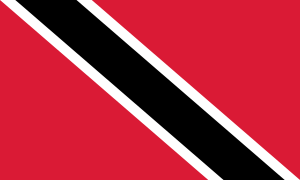
 World Oceans Day, in photos from Trinidad & Tobago, Global Voices (Jun 08, 2022) — The climate crisis is affecting the good health and sustainability of our oceans
World Oceans Day, in photos from Trinidad & Tobago, Global Voices (Jun 08, 2022) — The climate crisis is affecting the good health and sustainability of our oceans
Education for sustainability[edit | edit source]
Biodiversity[edit | edit source]
On 1 August 1996, Trinidad and Tobago ratified the 1992 Rio Convention on Biological Diversity, and it has produced a biodiversity action plan and four reports describing the country's contribution to biodiversity conservation. The reports formally acknowledged the importance of biodiversity to the well-being of the country's people through provision of ecosystem services. W
Environmental issues[edit | edit source]
Environmental issues are water pollution from agricultural chemicals, industrial wastes, and raw sewage; oil pollution of beaches; deforestation; soil erosion. W
About Trinidad and Tobago[edit | edit source]
Trinidad and Tobago, officially the Republic of Trinidad and Tobago, is the southernmost island country in the Caribbean. Consisting of the main islands Trinidad and Tobago and numerous much smaller islands, it is situated 11 kilometres (6 nautical miles) off the coast of northeastern Venezuela and 130 kilometres (70 nautical miles) south of Grenada. It shares maritime boundaries with Barbados to the east, Grenada to the northwest and Venezuela to the south and west. Trinidad and Tobago is generally considered to be part of the West Indies. The island country's capital is Port of Spain, while its largest and most populous municipality is Chaguanas.
External links[edit | edit source]
Wikipedia: Trinidad and Tobago, Environment of Trinidad and Tobago
